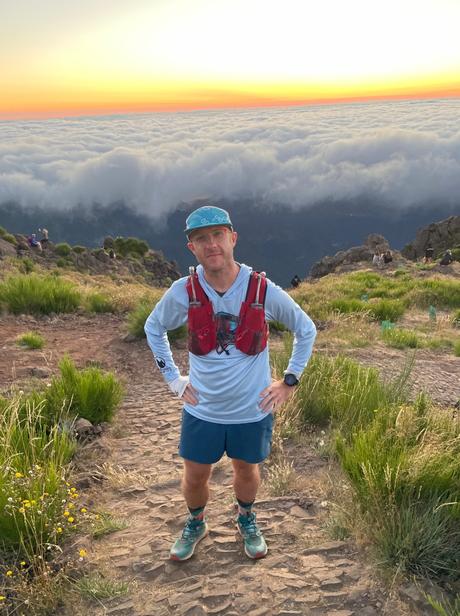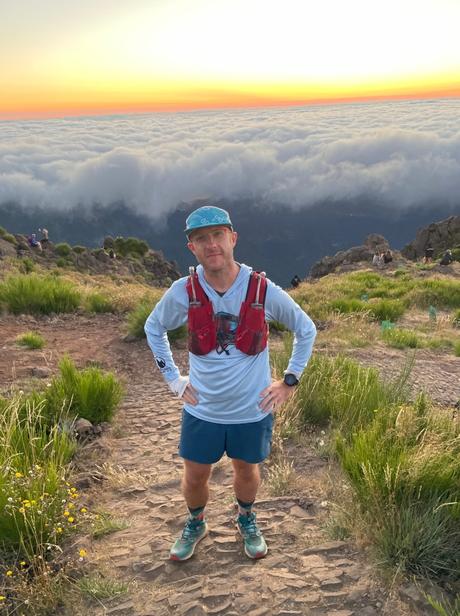
A little more than a week ago, I was standing atop Pico Areeiro on the Island of Madeira, watching the sun rise over the clouds. The cool morning air was fresh, clean, and the world was just beginning to wake up. I proceeded to hike/run to Pico Ruivo, the highest peak on the island, along one of the most stunningly beautiful trails I've ever had the privilege of setting foot on. When I finished, still high in the mountains, and waited for my shuttle back to my AirBnB, I sat down at a cafe and took a cafe (Cafe Duplo, to be exact), and let the morning wash over me. I was about two weeks into the longest vacation of my adult life, and I felt a sense of peace that I don't remember feeling before.

Americans have a complicated relationship with vacations. Almost half of all U.S. workers report not using all of their vacation time. We feel guilty when we are away, we check our email on our phones, no matter the location, and we constantly apologize for not responding to emails within 12 hours. I'm not making a profound statement when I say that we work too hard, and we are killing ourselves in the process.
The pressure to perform and output within our capitalist system has radically reshaped our relationship to our time, our work, our families, and our leisure. And to what end? Are we happier? Are we healthier? Are we even wealthier? Has our standard of living increased significantly? I'd argue that the answer is no to all of these questions, and in fact quite the opposite.
When I was in graduate school, the notion of "work-life balance" was just beginning to catch on in higher education and many other industries. As a young employee eager to prove myself, I balked at the idea and insisted that it didn't apply to me. I worked long hours, volunteered for countless extra committees and assignments, and prided myself on instant email responses no matter the time.
Sure, I was praised for my efforts, and I imagine some of the praise was even genuine, but that praise only signified a deeper knowledge I wasn't aware of at the time. I had been trained to work longer and harder than I was being compensated for, and to celebrate the opportunity.
Back in 2014, German automaker Daimler implemented a new email vacation policy. It gave employees access to software that would delete any incoming email while they were on vacation so they could be truly out of the office. When they returned from vacation, colleagues could follow up with them as needed, but their inbox would be empty. Now, I realize we can't all do this, nor do we have access to the software to make it happen, but we can still assert that we won't be checking email while on vacation. We can put up clear out-of-office messages, and we can delete our email apps from our phones. We can truly utilize the benefit (vacation time) that we earned through our hard work.
This trip made me realize in a much deeper way just how unsustainable this working pace truly is for all of us. I can still accomplish the things I want and need to accomplish, meet my goals, collaborate effectively with colleagues, and productively serve students, faculty, and staff. At the same time, I don't need to apologize for not responding to an email immediately, I can say no to projects and committees I don't have time for, and I can utilize the vacation time I've earned. Moreso, as a leader, I have a responsibility to encourage this kind of behavior with those around me, and model it for them and support them.
